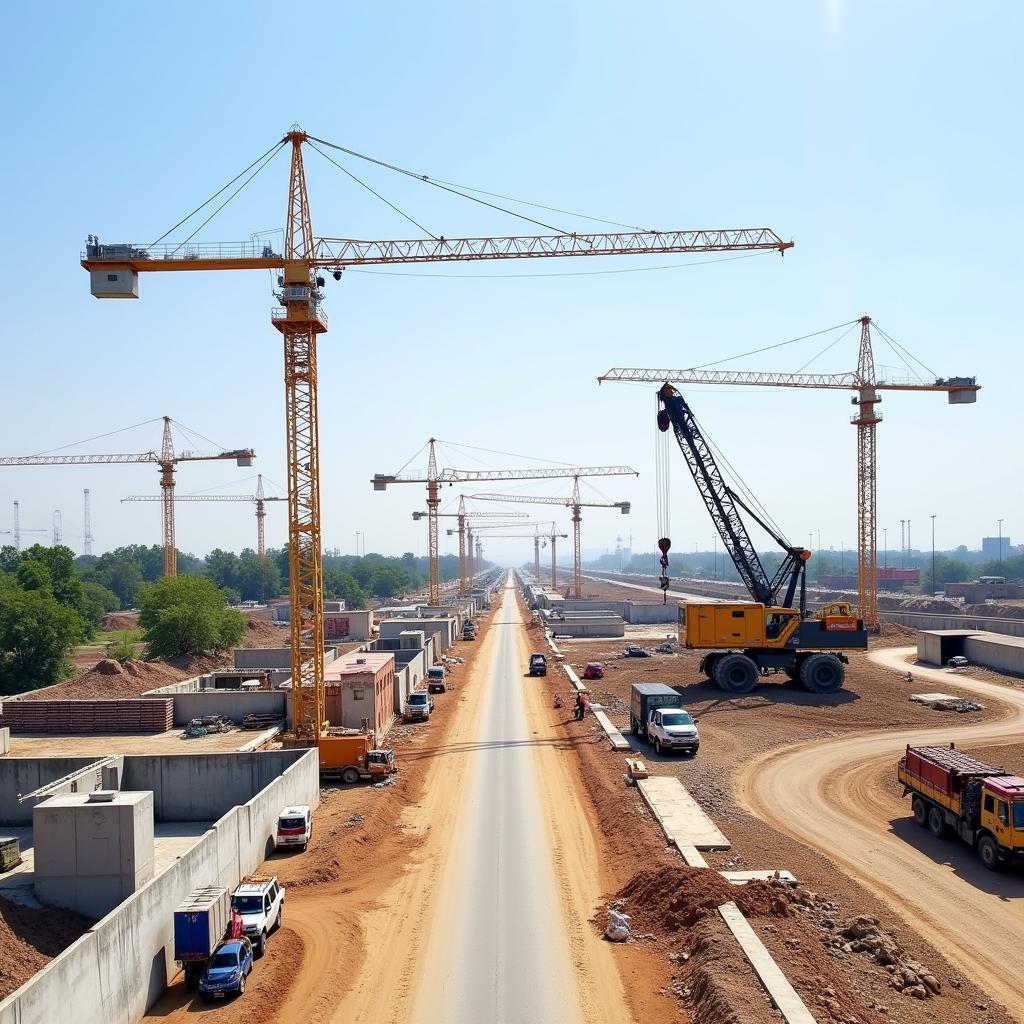Pakistan, a land of diverse landscapes and rich cultural heritage, is also home to a burgeoning landscape of projects across various sectors. These projects, ranging from infrastructure development to social upliftment initiatives, play a pivotal role in shaping the nation’s trajectory towards economic growth and sustainable development.
 Infrastructure Development Projects in Pakistan
Infrastructure Development Projects in Pakistan
The Significance of Projects in Pakistan’s Economy
Projects form the backbone of Pakistan’s economic engine. They create employment opportunities, attract foreign investment, and contribute to the overall improvement of living standards. As Pakistan continues to strive towards achieving its development goals, the role of well-planned and effectively executed projects becomes even more crucial.
Key Sectors Witnessing Project Growth
Several key sectors in Pakistan are witnessing a surge in project development, reflecting the government’s commitment to fostering growth and addressing critical national needs:
1. Infrastructure Development
Infrastructure development projects, particularly in the transport and energy sectors, are receiving significant attention. The construction of highways, motorways, and mass transit systems aims to improve connectivity and facilitate trade within the country and with neighboring regions.
The China-Pakistan Economic Corridor (CPEC), a multi-billion dollar initiative, is a testament to Pakistan’s commitment to infrastructure development. This ambitious project encompasses a network of roads, railways, pipelines, and special economic zones, with the potential to transform Pakistan’s economic landscape.
2. Energy Sector Expansion
Recognizing the importance of a robust energy sector, Pakistan is investing in a range of power generation projects. These include hydroelectric dams, coal-fired power plants, and renewable energy initiatives like solar and wind farms.
The push towards renewable energy sources aligns with global sustainability goals and aims to reduce Pakistan’s reliance on fossil fuels. Projects like the Quaid-e-Azam Solar Park, one of the largest solar power plants in the world, showcase Pakistan’s commitment to harnessing clean energy.
3. Social Development Initiatives
Beyond infrastructure and energy, Pakistan is also prioritizing projects aimed at social development. These encompass initiatives in education, healthcare, and poverty alleviation. The government is investing in the construction of schools, hospitals, and vocational training centers to enhance human capital and improve the quality of life for its citizens.
Challenges and Opportunities
While Pakistan’s project landscape holds immense promise, it is not without its challenges. Overcoming these hurdles is essential to ensuring the successful implementation and impact of these projects. Some of the key challenges include:
-
Bureaucratic hurdles and regulatory bottlenecks: Streamlining project approval processes and ensuring transparency in regulatory frameworks can significantly accelerate project implementation.
-
Financing constraints: Access to adequate funding remains a challenge for many projects. Exploring innovative financing models, such as public-private partnerships, can help bridge the funding gap.
-
Capacity building: Developing a skilled workforce equipped with the technical and managerial expertise to execute complex projects is crucial for long-term success.
Looking Ahead: A Future Shaped by Projects
The future of Pakistan is intricately linked to the successful execution of its development projects. By addressing challenges, embracing innovation, and fostering collaboration between the public and private sectors, Pakistan can leverage these projects to drive economic growth, create opportunities, and secure a brighter future for generations to come.
FAQs about Projects in Pakistan
1. What is the role of the China-Pakistan Economic Corridor (CPEC) in Pakistan’s development?
CPEC is a game-changer for Pakistan’s economy. It aims to boost infrastructure, create jobs, and improve connectivity through a network of roads, railways, and pipelines.
2. How is Pakistan addressing its energy crisis through projects?
Pakistan is investing in diverse energy projects, including hydroelectric dams, coal-fired plants, and renewable energy sources like solar and wind power.
3. What are some of the key challenges faced by projects in Pakistan?
Bureaucracy, funding constraints, and the need for capacity building are some of the challenges that need to be addressed.
4. How can the private sector contribute to project development in Pakistan?
Public-private partnerships (PPPs) can play a vital role in financing and implementing projects, bringing in expertise and resources.
5. What is the government doing to promote social development through projects?
Pakistan is focusing on projects in education, healthcare, and poverty alleviation, investing in schools, hospitals, and vocational training centers.
Need help navigating the landscape of projects in Pakistan?
Contact us! Our team is available 24/7 to provide you with the information and support you need.
Phone: +923337849799
Email: news.pakit@gmail.com
Address: Dera Ghazi Khan Rd, Rakhni, Barkhan, Balochistan, Pakistan
We are here to help you explore the exciting opportunities that Projects In Pakistan have to offer.